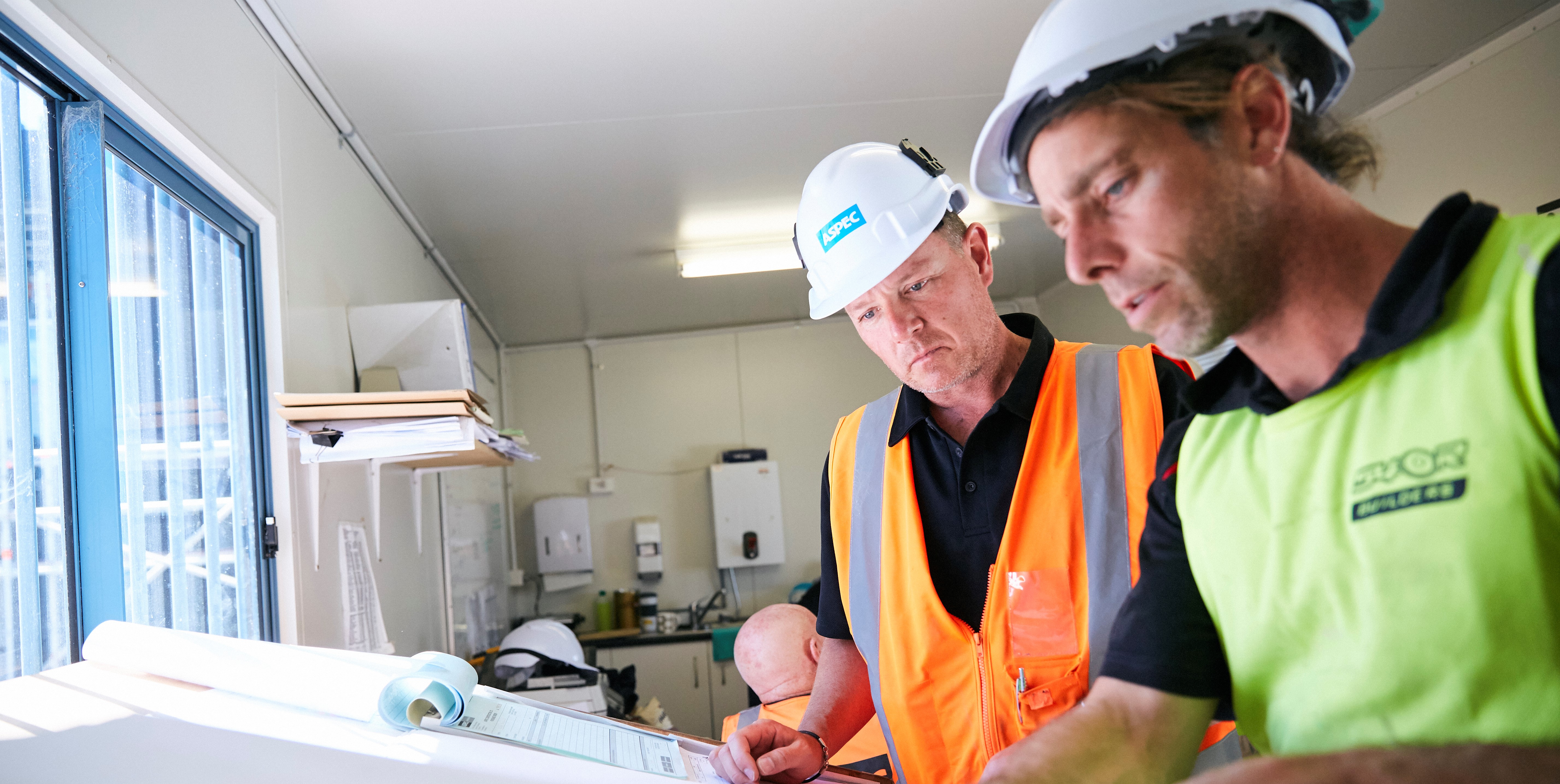Programme overview
The role of the Quantity Surveyor is diverse: evaluating subcontractor tenders and making recommendations to clients, managing construction costs and cash flows during the construction phase, and negotiating and agreeing on final project accounts. With a Bachelor of Construction (Construction Economics), you gain the skills to contribute to this exciting industry. Develop the technical skills and applied knowledge to ensure that construction projects are delivered to agreed budgets. Learn to undertake estimating and cost planning and prepare tender documentation. In this programme you'll learn about construction practice, team management, cost planning and advanced estimating techniques, tendering, and design management.
Highlights
- Great preparation for a career as a consultant quantity surveyor, a quantity surveyor, or a commercial manager for a construction company. These roles may lead to project management, company ownership, and other senior management positions.
- Gain a thorough grounding in all aspects of the construction industry.
- Learn and apply industry-standard software, including CostX, Building Information Modelling (BIM) technology, and Virtual Design and Construction (VDC) processes.
- Close links with industry: our advisory boards include experts who keep us up-to-date with industry trends, relevant legislation, and local, global, and environmental issues.
- Learn from experienced lecturers who are working or are working in the construction industry.
- Meet and hear from guest lecturers who are leaders in their field.
- In your final papers, you'll undertake a major industry research project where you can integrate what you've learned with practical experience.
- Following your shared compulsory papers (first 3 semesters), you'll choose your major* from Property Development, Construction Economics, or Construction Management. This allows you to get a good understanding of the general field first before you choose your direction.
- *You may choose to achieve a double major with slightly more coursework.
Recommendation on studying full-time
Studying full-time is like doing a full-time job. You might only be in lectures and workshops for 16 hrs a week, but you are expected to spend another 24 hours a week on self-directed study, quizzes, re-reading lecture content, and working on assignments. That makes 40 hours.
We recognize many of you want or need to work whilst you are studying, but we would not recommend you to do any more than part-time study if you have a full-time job and don’t let your working hours overlap with your lecture times.
Qualification pathway
Once you've completed this programme you'll receive a Bachelor of Construction (Construction Economics). As a graduate of this programme, you'll be eligible to become an accredited member of the following registered bodies:
Admission requirements
What you will need to study this programme.
Domestic students
International students
Academic requirements
As a part of this requirement, you must be at least 16 years of age and meet one of the following;
- All applicants must be at least 16 years of age when they begin their studies, and they should meet the country-specific admission requirement; or
- Successful completion of relevant programme
And English entry requirements;
If English is not your first language, you will also need at least one of the following qualifications:
- Evidence of an IELTS (Academic) band score of at least 6 with no band score lower than 5.5; or
- University Entrance Literacy: 8 credits at Level 2 or above in English or Māori (4 in Reading, 4 in Writing); or
- Evidence of English language proficiency as outlined in the NZQA Rules on the Unitec English Language Requirements for International Students Web-page.
Don’t meet these Academic requirements?
- If you don’t meet the academic criteria, our Bridging Education Programmes can help you qualify. Simply apply online, and we’ll be in touch about your next steps.
- If you don’t meet the above criteria, special or discretionary admission may apply; your eligibility will be determined at the interview.
For more information, download the programme regulations (PDF 487 KB)
Courses and timetables
For more details on the courses including timetables, please click on the course names below.
Debug
| Courses | Credits | Aim |
|---|---|---|
| Building Science and Materials(CONS5016) | 15.0 credits (0.125 EFTS) | To enable students to understand the basic physical principles of the Built Environment and their relation to buildings materials performance and selection. |
| Technology 3(CONS5103) | 15.0 credits (0.125 EFTS) | To enable students to explore foundations and structural systems in multi-storey construction. |
| Technical Fundamentals(CONS5504) | 15.0 credits (0.125 EFTS) | To enable students to develop an understanding of the basic techniques and systems involved in planning and estimating. |
| Property and Construction Law(CONS5818) | 15.0 credits (0.125 EFTS) | To enable students to develop an understanding of the legal context in which the construction and property industry operates. |





